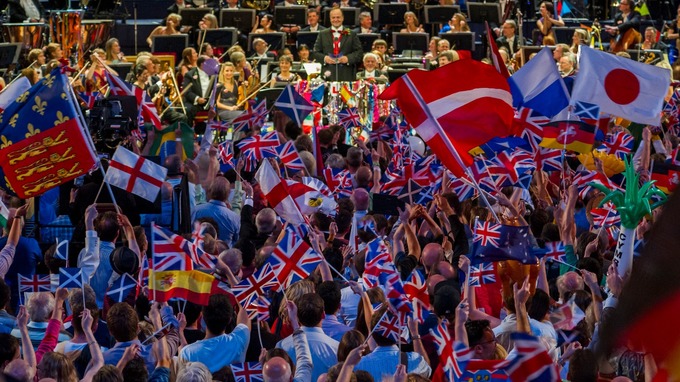LAST NIGHT OF THE PROMS - A Taste of Heaven?

As a self-confessed fan of the "Last Night of the Proms" I was drawn to this blog making the intriguing assertion that the quintessentially British extravaganza that is "The Last Night of the Proms" is a taste of heaven. See what you make of this piece written by Pippa James, Executive Assistant at the London Institute of Contemporary Christianity.
A Taste of Heaven
I think the Last Night of the Proms is a little bit like the new creation.
It’s a bold claim, but bear with me.
For a start, there’s joy, and plenty of it. The performers exchange their usual black outfits for bright dresses and pin flowers in their buttonholes. The conductor’s podium is festooned with streamers, party poppers may explode at any moment, and air horns regularly accent the music. It’s silly and exciting and you can’t help but smile.
Although it’s often thought of as a thoroughly British evening, the flags on display come from all around the world. Even the conductors in recent years have been Finnish, Czech, and American; Sir Andrew Davis will be the first Brit to take the helm since 2011. The Last Night may not quite cover every nation, tribe, people, and language, but it’s heading in that direction. And this isn’t a stony-faced, silent crowd. This multitude raises its voices to join together in song.
Despite its reputation, the Last Night isn’t all waving flags and patriotic songs. For example, this year’s concert will include the world premiere of Songs of Darkness, Dreams of Light by Roxanna Panufnik. Commissioned by the BBC, this work commemorates the end of World War One – and it reminds us that, even if WWI didn’t turn out to be the war to end all wars, one day there truly will be no more war.
I may not have convinced you. But is it such a ridiculous idea? It’s not that far from the image used throughout Blest Pair of Sirens, the piece that will end the first half of the concert. Here, Hubert Parry (composer of Last Night-regular Jerusalem) sets to music John Milton’s At a Solemn Music, which expresses a longing for the perfect music of heaven. To suitably jarring harmony, we hear how sin ‘broke the fair music’, yet there is a desire to keep in tune with heaven until, at last, we ‘live with [God], and sing in endless morn of light’.
And that’s one way the Last Night of the Proms is totally unlike the new creation.
It may be a party, but it’s also tinged with sadness, because it is an ending – of the Proms, of summer. But there will be no sadness in the new creation, and there will be no ending. That joyful celebration will go on for all eternity.


